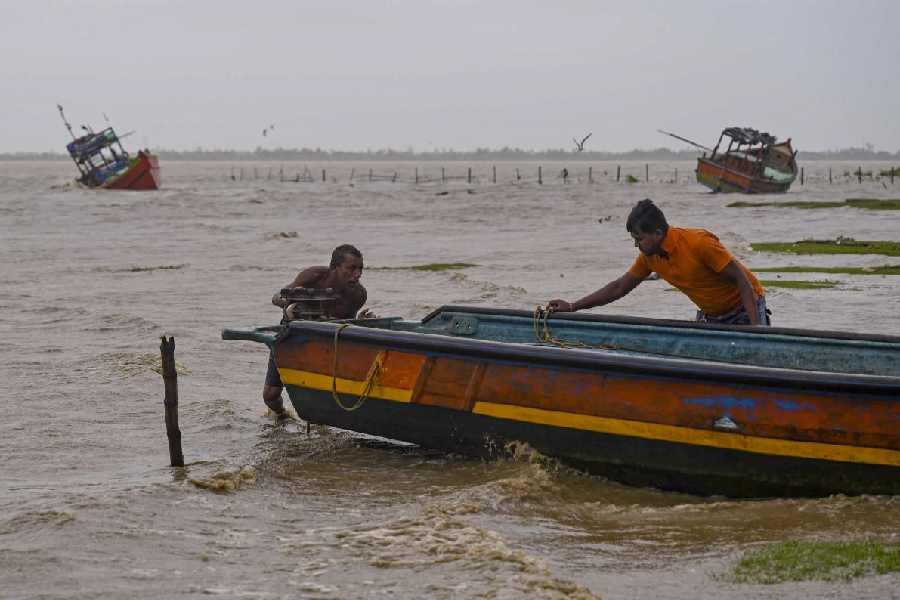The indigenously developed Vessel Communication and Support System has emerged as a crucial tool in safeguarding fishermen during Cyclone DANA, the government said on Tuesday.
The system, which enables real-time tracking and emergency response coordination, successfully guided fishing vessels to safety during the recent cyclonic conditions along the coast.
"This represents a significant milestone in maritime safety infrastructure...The response to Cyclone DANA has underscored the capabilities of transponder technology in protecting the lives of fishermen and enhancing India's preparedness for future maritime challenges," the Ministry of Fisheries, Animal Husbandry and Dairying said in a statement.
The technology allows authorities to track vessel locations in real-time and coordinate emergency responses, marking a departure from traditional maritime safety measures, it added.
The Vessel Communication and Support System features indigenous transponder technology developed by the Indian Space Research Organisation (ISRO).
The government has planned to install indigenously developed transponders on one lakh fishing vessels in all 13 coastal states and Union territories.
According to the ministry, more than 1,000 transponders have been installed in Odisha, and the technology proved to be a lifeline for the fishermen by providing support to them during the recent cyclone.
Experts said the system's success during Cyclone DANA could serve as a blueprint for other coastal regions facing similar challenges.
The implementation comes as India seeks to strengthen its maritime safety framework, particularly for its substantial fishing community that frequently faces weather-related risks.
Except for the headline, this story has not been edited by The Telegraph Online staff and has been published from a syndicated feed.










